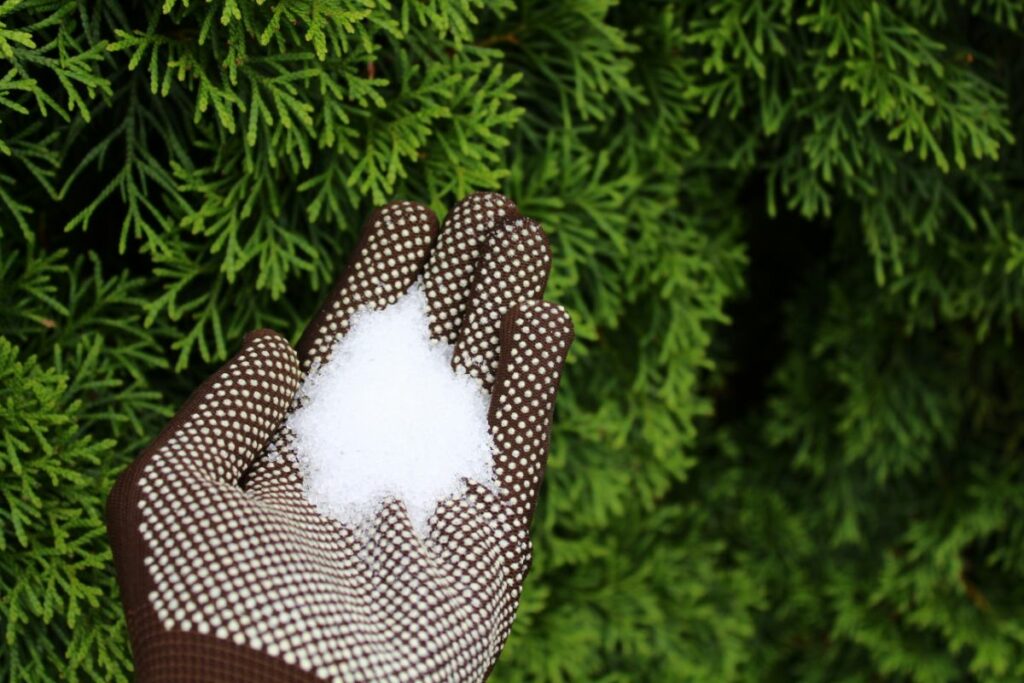Magnesium sulfate, commonly known as Epsom salt, is a mineral compound praised for its numerous applications across various sectors, from medical remedies to beauty treatments, and even as an aid in household cleaning. Among its many uses, its role in the garden is particularly noteworthy. It has earned a spot in the arsenal of gardeners who recognize its value in enhancing the wellbeing of plants and improving soil conditions.
The reason Epsom salt is valued in the garden stems from its fundamental nutrients, magnesium, and sulfur, which are crucial for healthy plant development. These elements support robust plant growth by acting as essential nutrients that help build strong vegetation. While Epsom salt isn’t a cure-all for all gardening problems, it serves as a beneficial supplement that can significantly improve plant vitality and soil health.
1. Enhancing Soil Nutrition
- Magnesium: Vital for chlorophyll synthesis, aids in turning sunlight into plant energy.
- Sulfur: Supports enzyme activities and overall plant health.
Utilizing Epsom salt can enrich your soil, bestowing plants with essential nutrients for robust growth.
2. Enhancing Seed Sprouting
- Epsom salt: A sprinkle in the planting soil can accelerate sprout emergence.
- Magnesium: Fortifies seedling cell walls for stronger early development.
- Success leads to heartier plants, setting the stage for vigorous growth.
3. Improved Nutrient Absorption
By incorporating magnesium, you enhance the soil’s capacity to provide plants with key nutrients such as nitrogen, phosphorus, and sulfur. Insufficient magnesium may lead to poor plant growth and vitality. Utilizing an Epsom salt mix is an effective way to counteract nutrient lockout, ensuring your plants remain capable of absorbing the necessary nutrients efficiently.
4. Counteracting Stress in Newly Transplanted Flora
To mitigate transplant stress:
- Surround new transplants with Epsom salt to foster quicker recovery.
- Promotes robust growth, aiding in stress resilience.
5. Eco-Friendly Pest Deterrents
- Epsom Salt: A gentle sprinkle near the stem base
- Purpose: Helps repel slugs and snails
- Benefits: No harsh chemicals, preserves soil integrity
6. Enhanced Blossom and Yield
Epsom salt application during bloom can lead to:
- Vibrant, fuller flowers
- Increased fruit production
Magnesium is vital for:
- Development of fruiting structures
- Boosting harvest quantity
7. Lawn Vitalization with Epsom Salt
Incorporating Magnesium sulfate, commonly referred to as Epsom salt, can significantly boost the greenery of your turf. It assists in the creation of chlorophyll, which intensifies the green hue and enhances the robustness of your lawn. This sturdier grass can better resist foot traffic and naturally keep weeds at bay through its vigorous growth.
When integrating Epsom salt into your lawn care regimen, the application is crucial:
- Spray Solution: Dissolve Epsom salt in water to spray on your lawn’s foliage.
- Soil Application: Spread Epsom salt directly over the soil.
It’s critical to balance the use of Epsom salt with a comprehensive lawn care strategy. This strategy should encompass:
- Regular watering
- Application of mulch
- Addition of compost and other organic substances
Prioritize conducting a soil examination before adding Epsom salt or any supplements to ensure the correct balance of nutrients. An overabundance of magnesium could harm your lawn and soil. As a rule, moderation is your best approach in applying this or any amendment to your garden.
Intelligent use of Epsom salt can not only promote healthier, more bountiful green spaces but also bring you closer to achieving an ideal garden environment.




how much do you use for each?